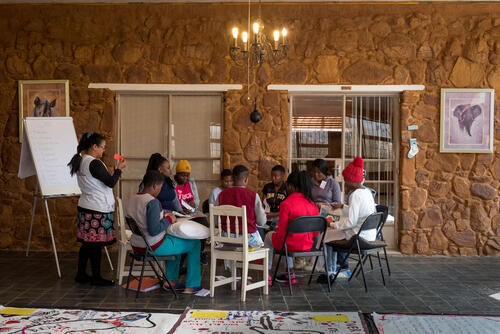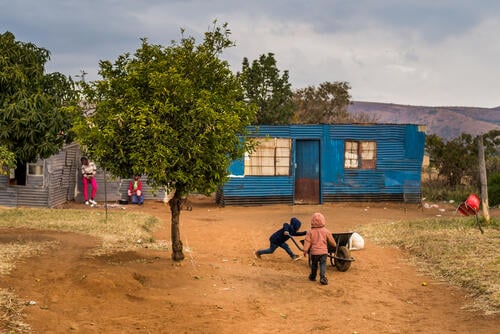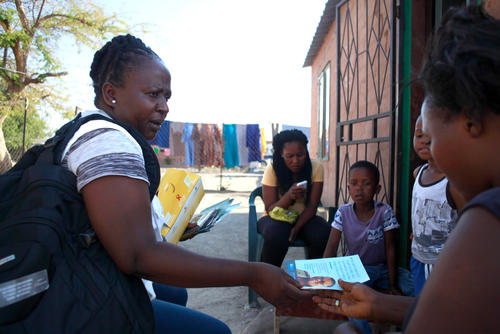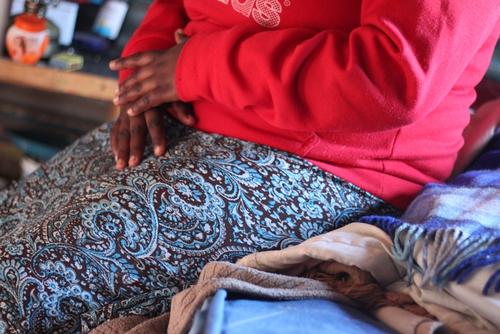Yolanda Hanning, mental health manager for MSF’s Rustenburg project, presents the challenges victims of sexual violence in South Africa face in accessing mental healthcare and how MSF is working to change that.
As a psychologist with a Médecins Sans Frontières (MSF) sexual and gender-based violence (SGBV) project in South Africa’s “platinum belt”, I recently dealt with the case of a woman I shall call Candice.
After being gang-raped, Candice reported to a provincial hospital, where she explained to an assistant that she had been thinking about taking her own life.
The assessment of suicidality should be included within screening questionnaires at health facilities, and patients presenting symptoms should be admitted for care and linked to a psychologist or psychiatrist without delay.
Candice was not assessed, however. Nor was she appropriately cared for. She was instead made to wait all night to see a health provider, sitting in a metal chair surrounded by the sick and injured.
Candice eventually received the care she needed in a private facility, but incidents of this nature are common, and most are not as fortunate as she was.
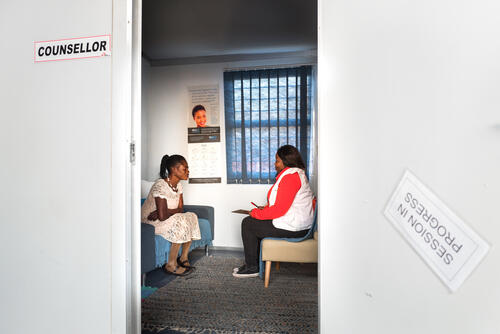
Critical gaps in mental healthcare for survivors of sexual violence
A new MSF report on the mental healthcare that is available for victims of sexual violence in South Africa confirms what many in the local SGBV community know through experience that, while the healthcare response to sexual violence is poor overall, the physical consequences of rape are recognised to some extent – whereas the “invisible” psychological consequences - which can include post-traumatic stress disorder (PTSD), depression, anxiety and suicidality – are often overlooked.
A total of 265 facilities in South Africa are designated by the government to provide comprehensive care to survivors of sexual violence, yet the survey data shows that 1 in 5 currently offers no mental health services, 45 per cent say they offer no counselling services for children, and nearly 40 per cent provide no risk assessment of suicidality.
Access to mental health services after rape should not be a lottery for survivors, recalling that the severe psychological consequences that can result from rape can be prevented or reduced with access to the right care.
A big barrier to progress is the low number of health facilities that are equipped to provide services to survivors, and the fact that most of these facilities are based in hospitals in urban areas and are therefore difficult for many to get to.
Places of comfort
MSF’s response has been to support the establishment of dedicated SGBV clinics at the primary healthcare level in Bojanala District in South Africa’s North West Province. These facilities, most of which are integrated in existing community health centres, are called Kgomotso Care Centres (KCCs) - Kgomotso being Setswana for ‘place of comfort’.
MSF currently supports four government KCCs, in which 1,821 survivors of SGBV have received a mental health consultation since 2016.
Developing an adequate mental health response has not been an easy task. In the absence of clear local guidance on what psychological and social services survivors of sexual violence should be getting, MSF in Rustenburg has largely followed WHO guidance, with every client entering a KCC receiving mental health assessment from a registered counsellor as a minimum.
All staff working in KCCs are trained as first-responders to SGBV cases, including MSF drivers, who frequently pick clients up and transport them to KCCs.
Clients are requested to return for a follow-up assessment one week later if needed, and are referred to a psychologist or psychiatrist if symptoms of severe psychological conditions persist.
Since the health needs of survivors cannot be adequately addressed without also considering their social world, survivors are connected to a social worker, who will assess their social needs and help them to develop plans to manage any risks they might face.
To ensure further continuity of mental healthcare, the KCCs have also established support groups, which enable survivors to address daily life challenges with their peers.
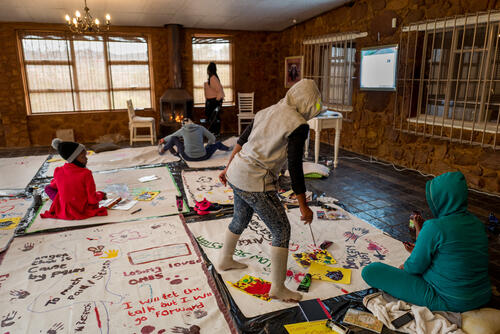
What more could be done?
MSF is using its operational experience and the findings of the 2018 survey to call on the government of South Africa to take necessary steps in order to reduce the amount of psychological illness and suffering caused by sexual violence.
We are specifically pushing for around-the-clock counselling in all 265 designated facilities, and a consistent approach to screening for serious psychological consequences of rape.
We are also calling for an interdepartmental review to assess where and how mental health services are offered, and by whom. This needs to be done in conjunction with a costing exercise.
This does not mean we think we have all the answers – on the contrary, our own response remains a work in progress.
We have found it difficult, for example, to follow up on the cases of severe and persistent psychological after-effects that we refer for psychological or psychiatric support, and we have not been able to keep KCCs open 24 hours a day, 7 days a week.
Improving mental healthcare for rape survivors is admittedly a major challenge, but government can no longer baulk at the complexity, as the true price of failure is counted in smashed ambitions, broken families, sickness, dysfunctional relationships and ruined lives.



